Anti-coup alliance in Sudan calls for ‘marches of millions’
Groups opposed to the recent military coup in Sudan have called for “marches of millions” on November 13 and 17 to protest the putsch.
The call by the Sudanese Professionals’ Association and affiliated groups, supported by the Forces of Freedom and Change (FFC), came late on Tuesday as hundreds gathered in Khartoum and other cities around the country to protest against the October 25 coup.
The committees, although struggling under an internet blackout and erratic phone services, brought out hundreds of thousands of people in an anti-military protest on Oct. 30.
The committees are organizing a mass demonstration under the slogan “No negotiations, no partnership, no legitimacy.” They have also threatened to launch a campaign of general strikes and civil disobedience.
Since the takeover, there have been attempts to mediate a solution to end the conflict between civilian groups and the military, but there has been little progress so far.
Late on Tuesday, the FFC, which served as the civilian government’s power base, rejected any negotiations with the military and said it would focus instead on unifying the ranks of the opposition. The large Umma Party also reaffirmed its opposition to the coup and its insistence on the return of ousted Prime Minister Abdalla Hamdok’s government and the release of detainees.
On Wednesday, four universities suspended classes in protest to the coup in different cities. Also schools in the capital reopened on Sunday, but few pupils attended.
The Coordinating Committee for Refugees and Displaced People announced that refugee camp residents in Darfur and the southern regions of the country would be joining the Nov. 13 protests.
On October 25, Sudan’s top general, Abdel Fattah al-Burhan, dissolved the cabinet and the ruling military-civilian sovereign council. He also declared a state of emergency and put Hamdok under an effective house arrest, while detaining other leading members of his government.
Burhan said the military would establish a new technocrat government, promising that elections would take place in July 2023. Until then, he claimed, the military would be the guarantor of the democratic transition and of Sudan’s stability and security.
Before the military coup, the African country was ruled by the transitional government that was installed in the aftermath of the ouster of President Omar al-Bashir in another coup two years ago. The military shared power with civilians in the transitional authority since the removal of al-Bashir in 2019.
In recent weeks, the military has been mounting a harsh crackdown on protesters, who have been taking to the streets after Sudan’s main opposition coalition called for civil disobedience and protests across the country hours after the military coup.
May 9: ‘Axis of Resistance’ operations against Israeli occupation
VIDEO | Venice: Police clash with pro-Palestine protesters at G7 Justice meeting
UNRWA closes al-Quds HQ after Israeli settlers torch it twice
VIDEO | 35th intl. book fair kicks off in Tehran
Iraqi resistance targets vital Israeli sites in Eilat in support of Gaza
Voting begins In Iran's run-off parliamentary election
VIDEO | Press TV’s news headlines
VIDEO | Five activists arrested as police close Vienna encampment


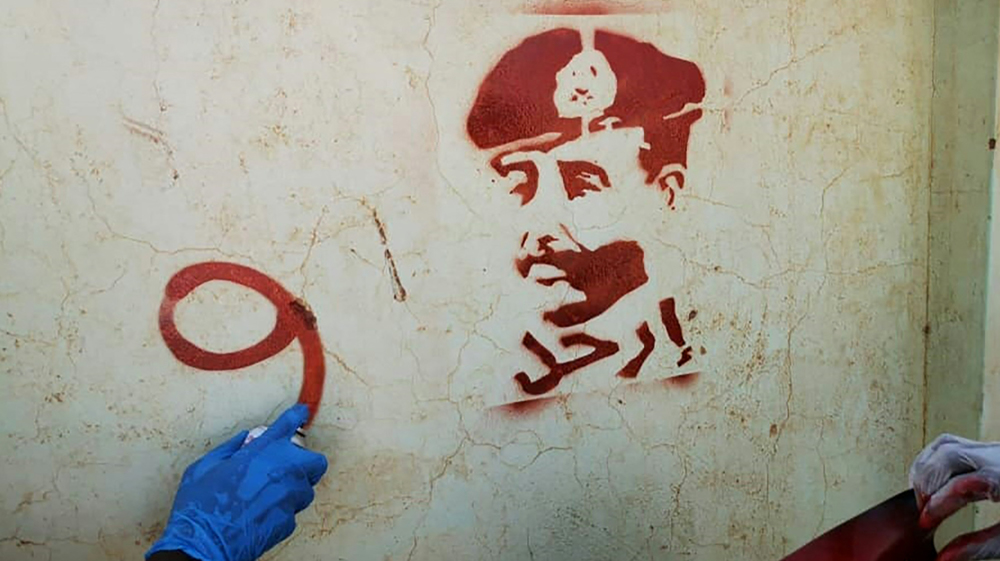
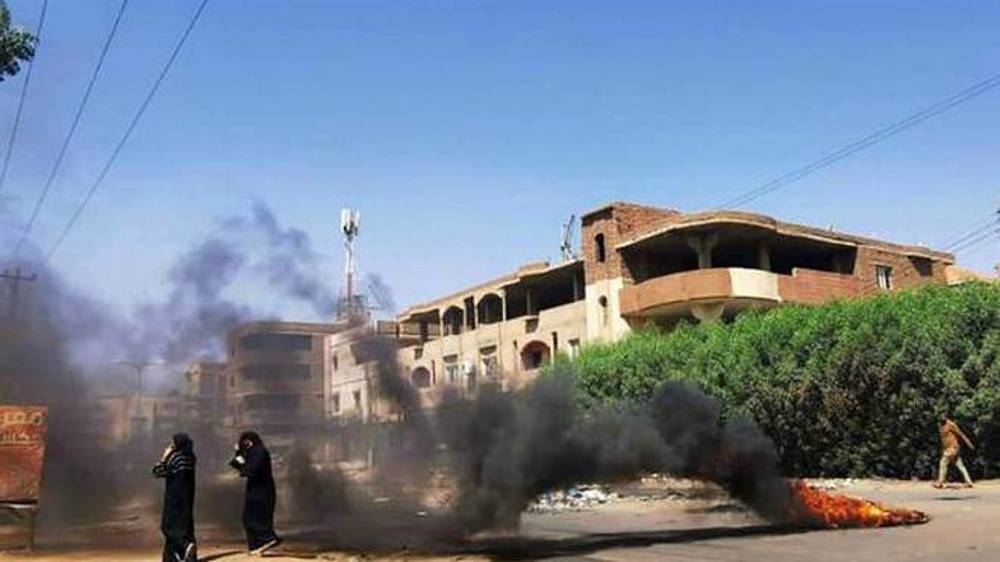
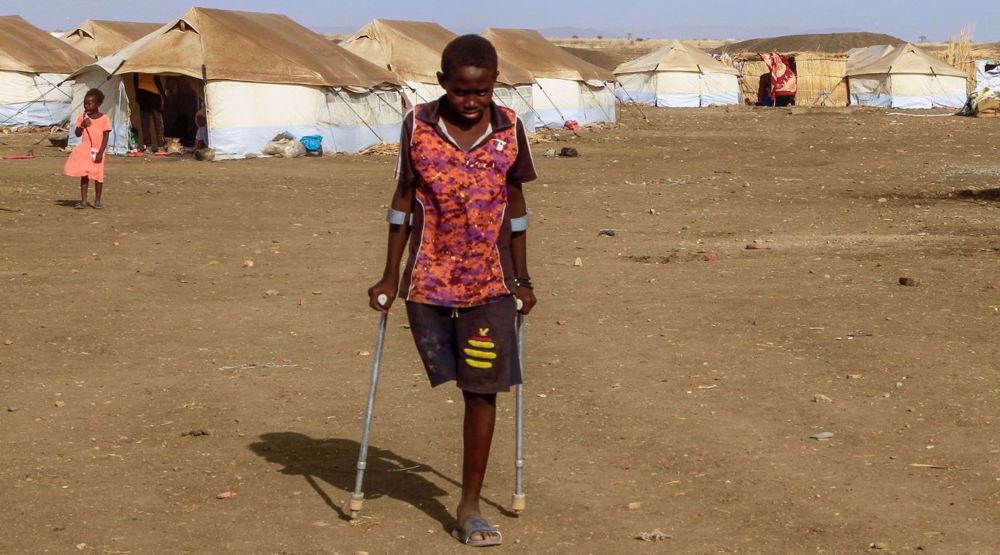
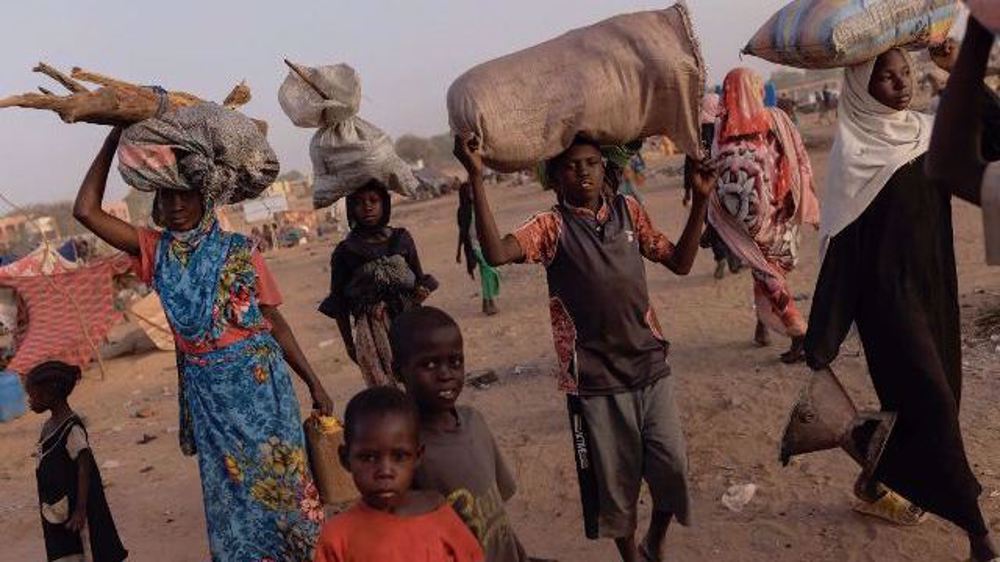
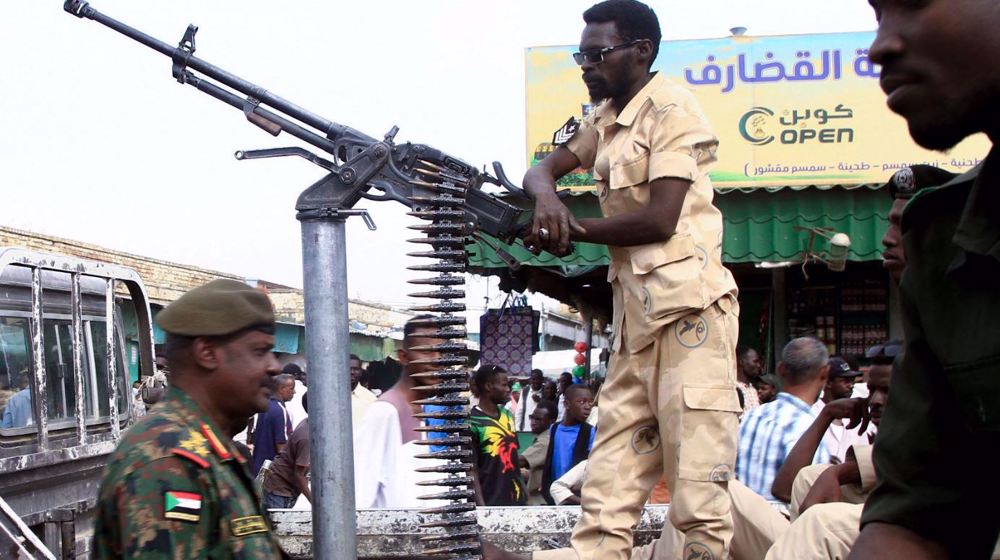



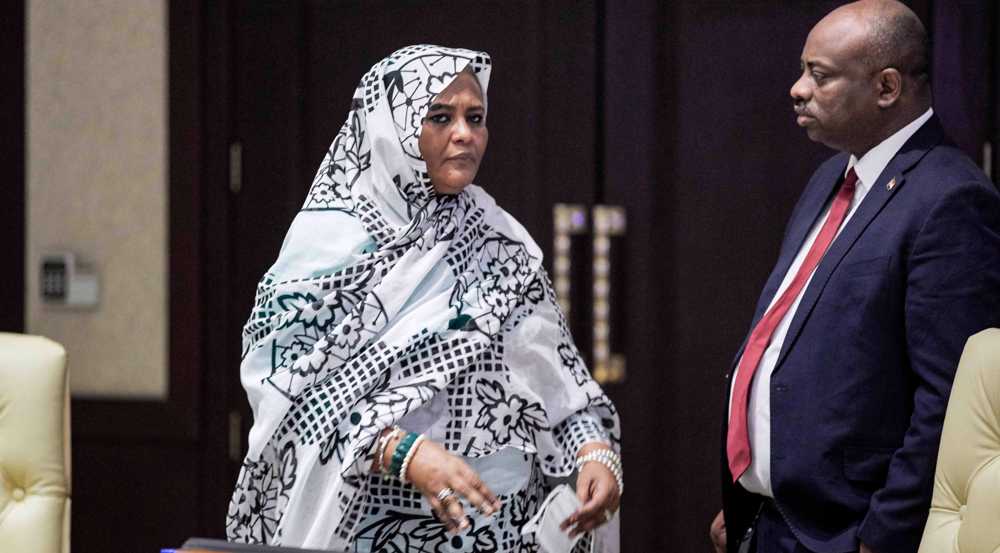
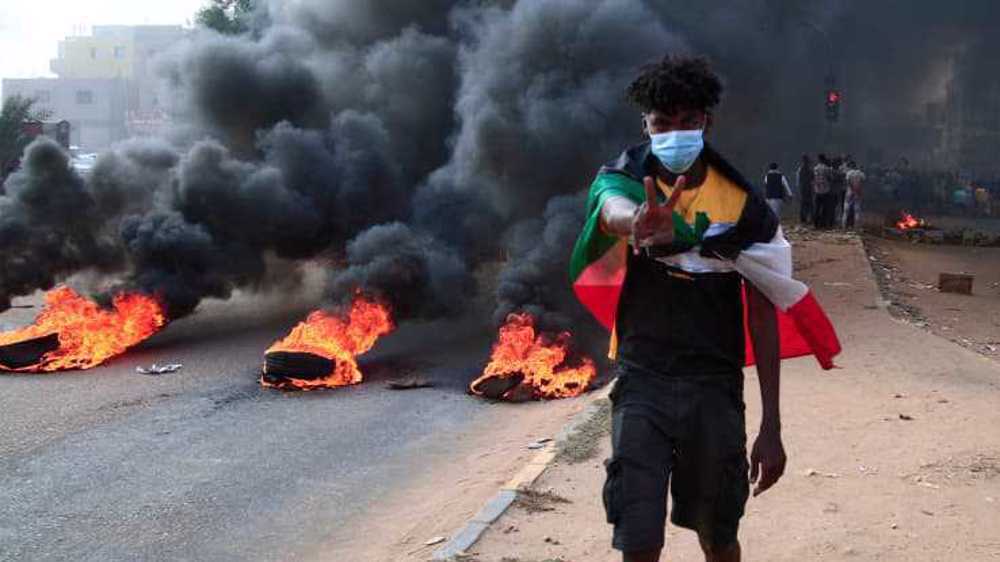
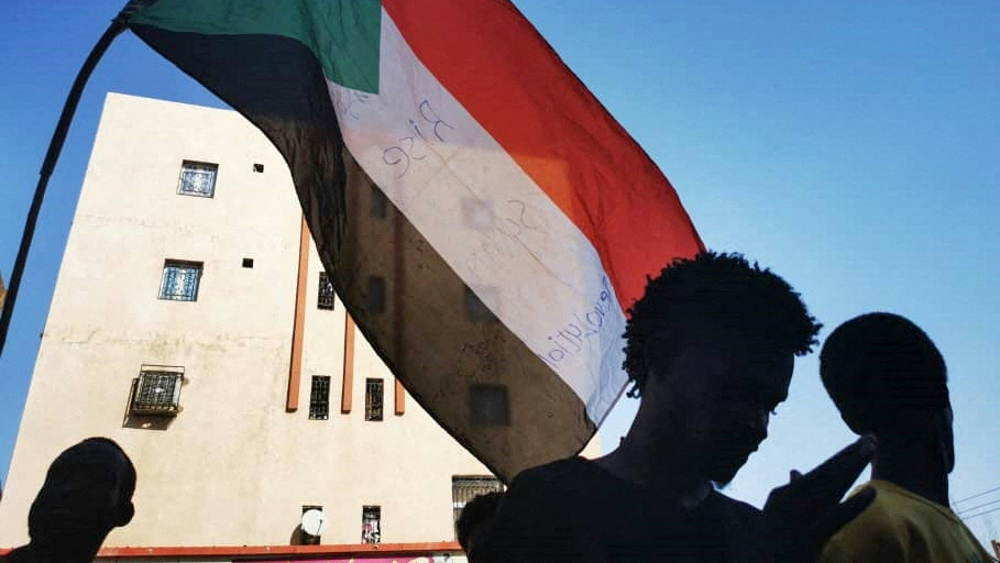
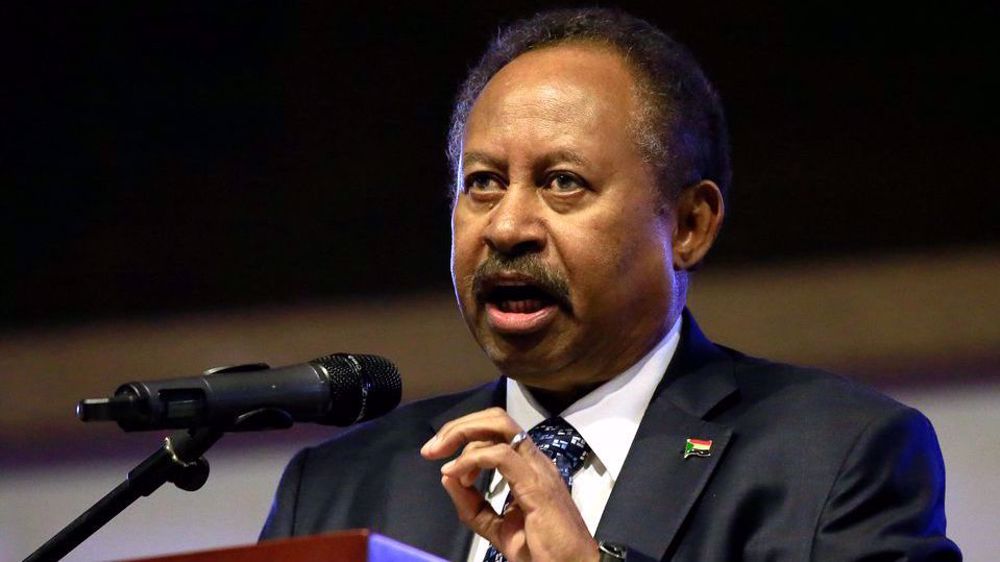
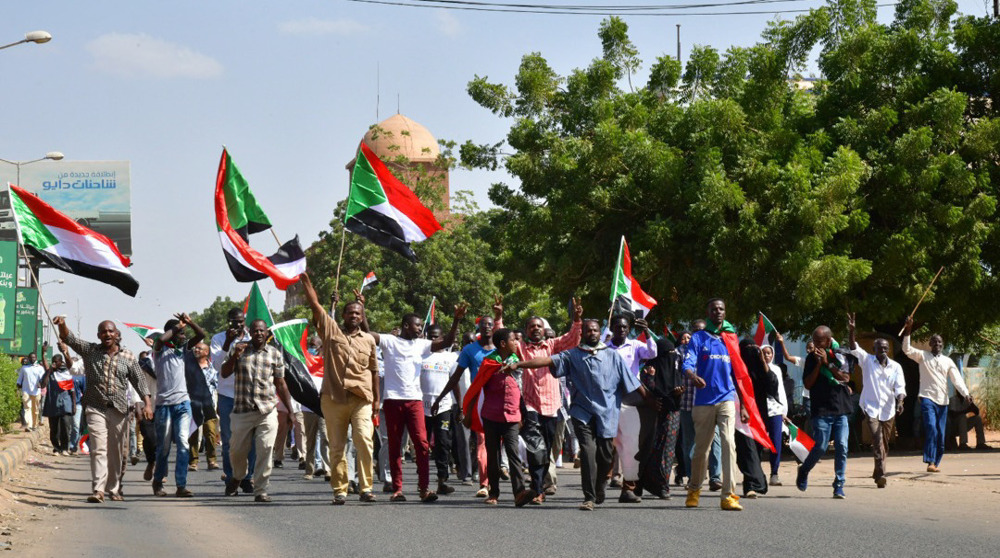

 This makes it easy to access the Press TV website
This makes it easy to access the Press TV website